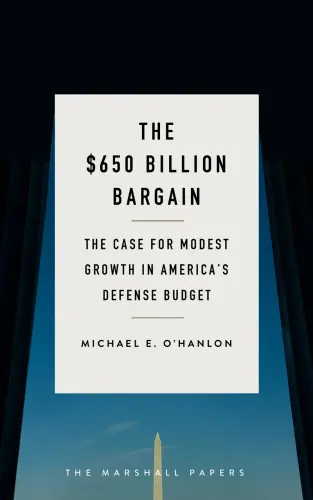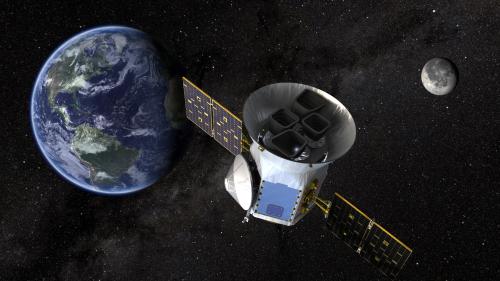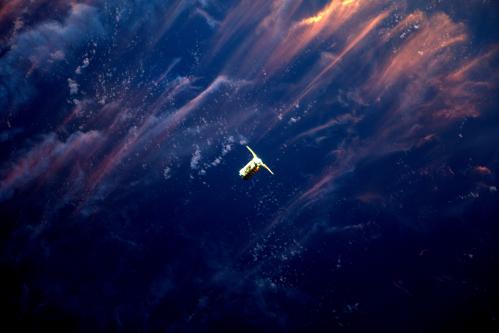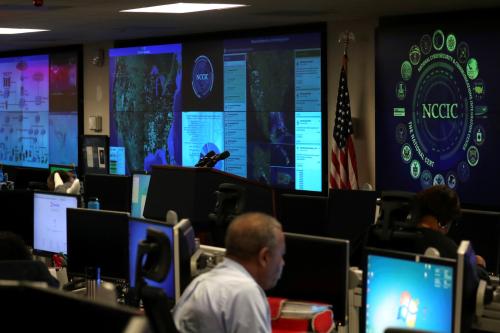In a speech this week, Vice President Mike Pence said: “The time has come to establish the United States Space Force.” He laid out a vision President Trump articulated earlier this summer, to create a new service within the U.S. military that would focus entirely on space. While a “Space Force” is not necessarily an entirely new idea, as experts have explained, a presidential proclamation elevating it in such a way is a first.
On July 30, Brookings hosted an event exploring whether a Space Force is a good plan. Participants included Former Secretary of the Air Force Deborah Lee James; Steve Jacques, a retired Air Force officer and now managing partner at Velos LLC; Brookings Senior Fellow Frank Rose, former deputy assistant secretary of state for space and defense policy; and Brian Weeden, director of program planning at Secure World Foundation. Michael O’Hanlon, senior fellow at Brookings, moderated the discussion and shared his own thoughts on the issue.
Michael O’Hanlon started by saying: “I want to give President Trump credit, it’s a big idea. It’s a good kind of idea for a president to have.” He went on to frame the issue, partly by quickly detailing the four traditional military services—Army, Air Force, Navy, and Marine Corps—plus the Coast Guard, which is housed under the Department of Homeland Security. O’Hanlon argued that space is a different kind of domain: Consider, for instance, that the typical geosynchronous orbit level for satellites—some 22,000 miles above the Earth—already dwarfs other military domains and it is a tiny part of space more broadly.
He explained space’s critical importance for the last roughly 60 years, saying: “We have been using space in a more tactical, real-time way for targeting.” So have our competitors, he added, and countries like China and Russia “have the capacity to do so almost as well, if not as well, as the United States in the near future” in the space domain.
Deborah Lee James—who has a long background in government and within the U.S. Air Force, culminating in her role as secretary of that service—was quick to state: “I do not believe that we should have a separate Space Force.” She outlined areas of criticism when it comes to the Air Force’s management of space issues, namely: 1) there is not enough money being dedicated; 2) there is a slow acquisitions process; 3) many of the people face limited paths to excel in their space-focused careers; and 4) there is an overall lack of warfighting focus. Space Force is not the solution for any of these problems, she argued.
“What is the problem we are trying to fix?” James asked. She said that reorganization is often a mask, and that reorganization itself takes about a decade. She also argued that if warfighting is a main concern—as she thinks may be President Trump’s rationale—a new service is not the place to focus. “A military service trains, organizes, and equips, it doesn’t war fight. The combatant commands do the war fight,” she said. “I would support a full-up, unified command, so it would be the equivalent of a STRATCOM.”
Brian Weeden, a retired Air Force officer, has long focused on defense issues in space. He was similarly skeptical that Space Force—which still lacks clear definition—is the answer for U.S. defense challenges there, but said he finds the general idea of a space-focused entity to be a smart one. He said it makes sense to focus on the increased globalization, commercialization, and militarization of space. On space commercialization, Weeden predicted that soon the private sector “is probably going to eclipse the government activities and then outstrip them.” On militarization, Weeden noted that space is “basically being integrated at all levels of warfare.” Finally, he reminded the audience that legislation is necessary and highlighted that some of this is working its way through Congress already.
Frank Rose—who has worked extensively on space and security issues in government and in the private sector—said: “Let me start by saying I’m undecided with regards to whether the idea of a Space Force is a good idea or not,” adding that it might not be the right approach to current threats. While Rose suggested that the plan still lacks key details, he also said: “This is a very serious issue and it is primarily driven by the development of anti-satellite capabilities by Russia, China, and others.” He also pointed out that President Obama focused on this issue in the last two years of his administration.
For Rose, a fundamental issue is ensuring that a Space Force would be effectively integrated with current U.S. forces. Defense Secretary Jim Mattis, for instance, has publicly wondered if a “Space Corps” would present too narrow an approach at a time when the integrated multi-domain approach is now favored.
Steve Jacques—a professional consultant with long, specialized experience in national security, space, and intelligence—reiterated the serious nature of the idea. “Space Force is not simple and it’s not a joke. It’s something that’s really important to talk about,” he said. Jacques agrees there should be debate on specifics, arguing: “I think a focal point is needed. I think indeed we need a new, focused, empowered, properly resourced” group or entity, whether it is “Space Force, Space Corps, Space Agency.” He went on: “We must have a focused, empowered person on top inside the national security establishment.”
While Jacques stated that the United States is “still the world’s space-faring nation,” he also intimated that Washington must work to maintain that (he said: It’s as if “some of our nation’s leaders have just assumed in a passive way that the space systems will always be there.”).
As a retired Air Force officer, Jacques said he finds it hard to be too critical of that service, but he referred to some questionable moves (like Donald Rumsfeld’s decision to separate the National Reconnaissance Office from the Air Force) as a reason legislation is needed. In the face of rapid defense policy shifts between administrations, legislation can provide some more certainty.
O’Hanlon asked the panelists: What should happen next? James mentioned an imminent Department of Defense report on the subject as one starting point, and reminded the audience that the National Defense Authorization Act is currently working through Congress, which will direct a sub-command for space under STRATCOM. Weeden said he doesn’t see much relevant movement until the FY2020 budget, at the earliest, and that for now there is a planning stage. He again reiterated the need for Congress to play a significant role and was cautiously optimistic about that, based on bipartisan conversations in the past.
Rose agreed that this is a decision Congress will ultimately make. He expressed some concern that the proposal could turn partisan now that it’s linked to President Trump, and argued that due to the vast importance of space for U.S. national security, the idea should not be overly politicized. Concurring with Rose, Jacques called this an “apolitical issue.” He also reminded the audience that the current administration has created a space council, and that this is an issue that will only grow in importance ahead.
The Brookings Institution is committed to quality, independence, and impact.
We are supported by a diverse array of funders. In line with our values and policies, each Brookings publication represents the sole views of its author(s).







Commentary
Experts offer their views on creating a Space Force
August 10, 2018